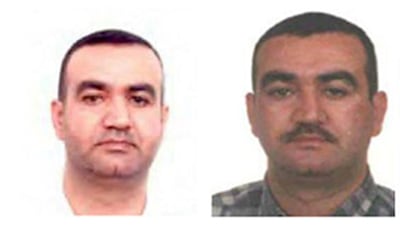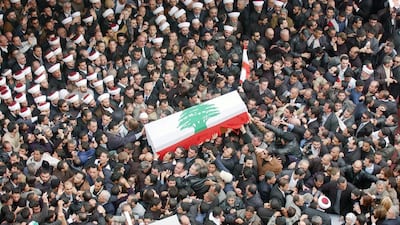A new trial against Salim Ayyash, found guilty last year of involvement in the assassination of former Lebanese prime minister Rafik Hariri, has been cancelled by a UN-backed tribunal due to a lack of funds.
The trial was meant to begin on June 16, prosecuting Ayyash, a member of the Iran-backed Lebanese armed group Hezbollah, for attacks on senior Lebanese politicians: former deputy prime minister Elias El Murr, former lawmaker Marwan Hamade and politician George Hawi.
Mr Hamade and El Murr survived the assassination attempts, but Hawi was killed.
The court found the three cases to be connected with the attack that killed Mr Hariri in 2005 and charged Ayyash with five counts, including acts of terrorism.
“The imminent exhaustion of funds will impact the tribunal’s ability to finance the continuation of judicial proceedings and completion of its mandate unless further contributions are forthcoming this month,” the court said.
The Special Tribunal for Lebanon (STL) said days earlier the court would close in July if it didn't find urgent funding.
Lebanon is responsible for covering 49 per cent of the tribunal's budget but has been unable to fulfil its commitments due to a crippling economic and financial crisis that has plunged half the country’s population into poverty.
In March, the UN provided $15.5 million in additional funding to plug the deficit but funding remains short.
Ahead of the trial, it urged the international community to provide further financial support.
“The STL continues its intensive efforts to raise the funds required to carry on its ongoing judicial proceedings and reiterates its urgent call upon the international community for its continued financial support,” the STL said.
Lawyers representing the victims said the tribunal’s failure for financial reasons would send a negative message to those awaiting justice, describing the court as "the last hope for rule of law and justice in Lebanon".











